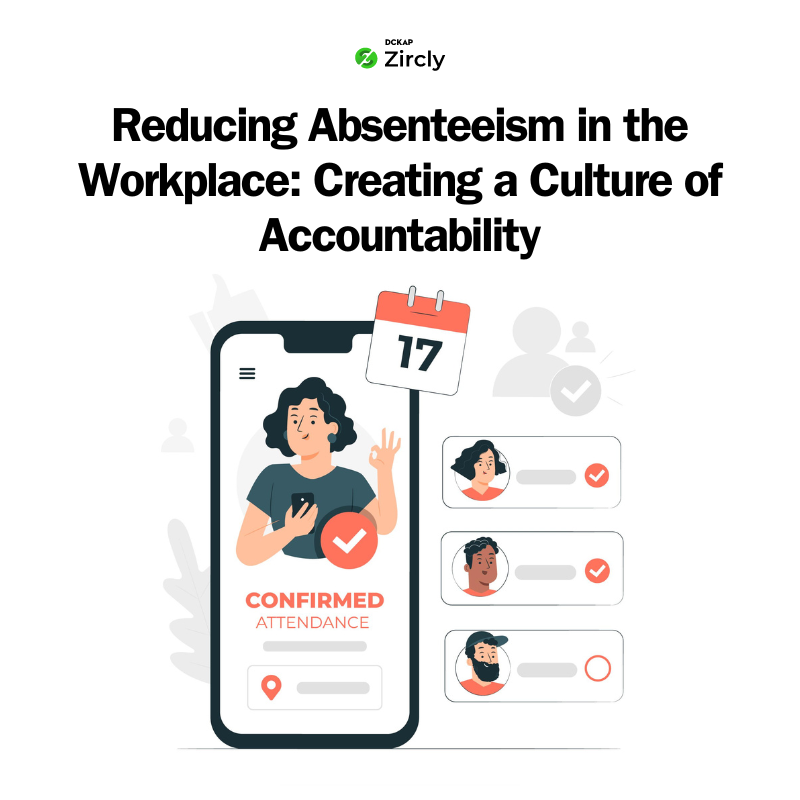
A challenge many businesses irrespective of industry and country face is that of absenteeism. This not only affects productivity and morale, but also the company culture. Absenteeism can also snowball into something larger and get out of hand if not dealt with appropriately.
Understanding Absenteeism
Absenteeism, defined as the habitual absence of an employee from work, is an issue all organizations face irrespective of industry and country.
In the US alone, absenteeism costs US employers billions of dollars in lost productivity and revenue.
The Impact of Absenteeism
The habitual absenteeism of an employee or employees can disrupt workflows, and project timelines and strain relationships within the team and the organization. Over time, it can lead to increased workloads on the remaining employees, resulting in burnout and decreased job satisfaction.
Constant consistent absenteeism from just one individual can lead to absenteeism issues across the organization if left unchecked.
Building a Culture of Accountability
One of the most tried and tested ways to combat absenteeism is to build a culture of accountability. While building a culture of accountability is a long process, there are 3 ways to get the ball rolling
Clear Expectations
Setting clear expectations around attendance and performance is the first logical step. The key to driving the point of these expectations home is to help employees understand the importance of their presence and the impact of their absence.
Open Communication
Encourage open, honest communication so employees can freely discuss their challenges, and any personal issues affecting their attendance. Doing so actively, combined with regular check-in and feedback sessions can help identify and nip potential issues right at the bud.
The key to driving honest, open communication, is to build trust with employees, so they rest assured that their challenges are not falling on deaf ears.
Lead by Example
Leadership is crucial to building company culture. Leaders must be examples of accountability and openness, not only to boost morale and build trust but also so that employees start taking these new rules seriously.
The Role of Technology
Technology can greatly streamline culture building and attendance tracking, and facilitate communication between employees and teams. Platforms like Zircly use features such as real-time attendance monitoring, multi-channel community, and OKR building, tracking, and sharing to simply the job of empowering employees to stay engaged, motivated, connected, and accountable.
Benefits of Accountability
But what happens when people become accountable? Does a simple change to how the organization runs really have a significant impact? The answer is yes. Some more obvious ways the impact of accountability is measurable include:
Improved Productivity
By cultivating a sense of ownership and responsibility, a culture of accountability leads to an organization with increased productivity and efficiency.
Enhanced Morale
As accountability gets woven into the fabric of an organization’s culture, employees feel more and more accountable for their actions. The more accountable employees feel, the more likely they are to take pride in what they do and contribute positively to the team dynamic, fostering a culture or trust and collaboration, and ultimately boosting everyone’s morale.
Reduced Absenteeism
As individual accountability becomes more and more prominent, and underlying issues are addressed before they become issues, organizations will start seeing a reduction in absenteeism rates and mitigate the associated costs.
A culture of accountability is essential for reducing absenteeism and fostering a culture where people are happy to come to work every day. While clear expectations, open communication, leading by example, and leveraging technology will not solve these problems immediately, irrespective of the solutions organizations explore, without these practices, the culture will forever stand on a shaky foundation.
Through these new practices, businesses can empower employees to take ownership of their roles and more effectively contribute to the organization’s success.
More than productivity and morale, accountability is the foundation of a resilient and thriving workplace culture.
Accountability is not about blame, but about taking ownership and working together towards common goals. With dedication and a commitment to accountability, businesses can overcome the challenges of absenteeism and unlock the full potential of their workforce.




